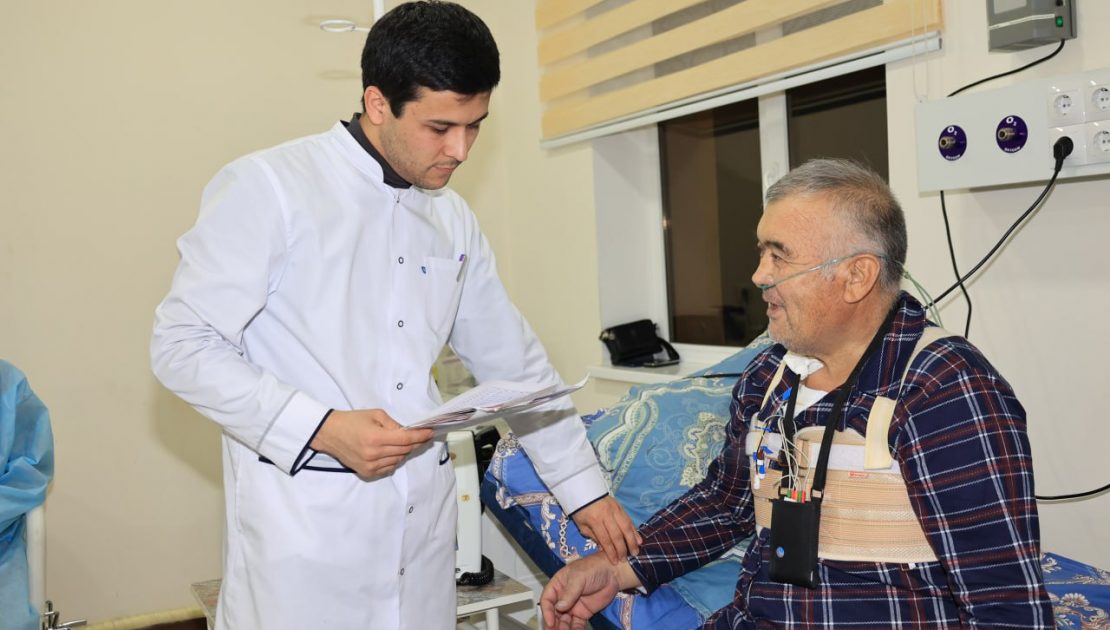Among the Post-Soviet countries, historically only the Government was responsible for ensuring universal access to health care. But over time the governments failed to fund health care systems at a level that would ensure not only universal access, but also decent quality of care. After independence was gained in 1990-1991 by former USSR countries, private providers were allowed and flourished, which widened inequalities in access and quality of care.
Considering the rising health care costs and inability of the States to cover population needs in health care services, while maintaining decent quality and access to care, Central Asian countries, one after another, are introducing health insurance systems with mandatory participation.
This year, Uzbekistan is launching a compulsory health insurance reform to replace the inherited long-standing budget system.
The phased introduction of compulsory health insurance in Uzbekistan is decided in the decree of the country’s President Shavkat Mirziyoyev issued on December 7, 2018, # 5590.
Amid the COVID-19 pandemic, in December 2020, Uzbekistan has established the State Health Insurance Fund (SHIF) under the Cabinet of Ministers, based on presidential decree #4890 and citing WHO recommendations.
Starting from June 1, 2021, in the Syrdarya region of Uzbekistan, a pilot project is launched to introduce a new model of healthcare delivery – transition to universal state insurance with the creation of “electronic polyclinics” – a database for each patient updated live on services delivered and accessible to the payer, SHIF.
The Syrdarya region was chosen for the pilot project as the region with the smallest population (805 thousand people) and at the same time a sufficiently developed health care infrastructure. To clarify the nuances of the pilot project and the launch of the SHI reform, responsible officials of the State Health Insurance Fund met with journalists at a media briefing on April 27 in Gulistan, the administrative center of the Syrdarya region.
According to international news agency Fergana, “the goal of introducing state health insurance is to improve the quality, efficiency and accessibility of medical care to the population,” said Farrukh Sharipov, CEO of the State Health Insurance Fund. Mr Sharipov added that the introduction of new financial mechanisms will expand the network of primary health care providers to the population, making access guaranteed to every citizen, regardless of patients’ material well-being, and this will create a healthy competitive environment in the medical services market.
“The new model has obvious advantages over the previous system of budgetary financing of medicine. If earlier, within budget model, medical institutions were allocated an estimated funding at the beginning of the year, within the framework of which funds were spent – regardless of what services and how many were actually provided to patients, now, the SHIF, as the financial agent, will distribute funds according to the volume of work performed,” explained the Deputy Minister of Finance of Uzbekistan Jamshid Abruev. He clarified that starting from 2021, only state (public) health care organizations will be participating in the state health insurance scheme. However, in the near future, the Fund will also allocate funds to private health care providers, which will create additional incentives for healthy competition, should the patient decide to go to a private clinic.
As part of the project, care teams will be created in primary health care facilities, which will include a family doctor, visiting (patronage) nurses specializing in internal medicine and paediatrics, and obstetricians. Each health care organization will develop a benefits package of free medical services and medicines guaranteed by the state. The population will be divided into risk groups. Newborns, children under 5 years old, fertile age women and people over 60 years old will be given special attention. At the heart of the system is a family doctor who makes referrals to specialist doctors and makes a decision on the need for hospitalization. State health insurance, according to its logic, should also become an incentive for strengthening disease prevention, organizing regular screening examinations of various categories of citizens, taking into account professional and regional specifics.
According to the media, one of the main questions – who will pay for all this? “A feasibility study was prepared by the World Health Organization said Zokhid Ermatov, First Deputy of the CEO of the State Health Insurance Fund. “Based on its results, it was decided that additional deductions from the population would not give a significant increase to the existing level of health care funding in Uzbekistan. In this regard, it was decided that the implementation of state health insurance in our country will be based on general taxes. Citizens will continue to pay the income tax at the rate of 12 percent. By more targeted use of funds allocated for health care, we want to ensure that the quality of medical services, their coverage and volume will be increased, ”said Mr. Ermatov.
So no contributions from the employers and employees will be collected for the SHI scheme at this phase of SHI reform in Uzbekistan.
The State Medical Insurance Fund will receive funds from:
- the state budget for basic compulsory medical insurance;
- targeted deductions from excise taxes on tobacco products, alcohol, high sugar foods, trans fats and other products that are harmful to health (introducing the so called “sin taxes” as the first nation in Central Asia);
- funds from the state budget to pay compensation for the execution of court decisions;
- voluntary contributions and receipts under donation agreements from legal entities and individuals;
- grants from international organizations; funds received from charitable foundations, international organizations and foreign citizens; other income that does not contradict national legislation.
From 2023, state health insurance is planned to be introduced in Karakalpakstan, Tashkent, Samarkand, Navoi, Surkhandarya and Fergana regions, and from 2025 – throughout the entire Uzbekistan.
Source used: https://fergana.site/news/122032/



